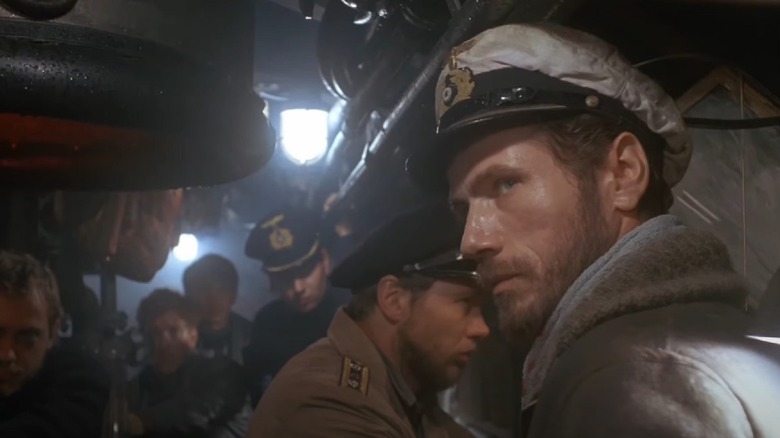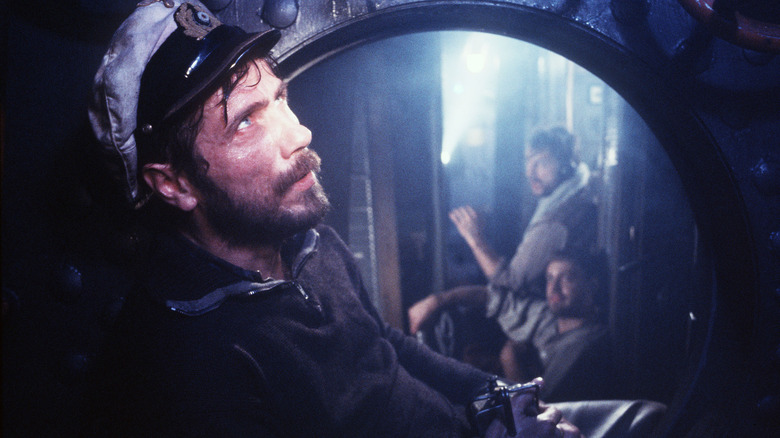The Real-Life End To The WWII Submarine In Das Boot Differs Greatly From The Film
In 1981, the German war film "Das Boot" was released in theaters. It was an adaptation of the 1973 novel of the same title written by Lother-Günther Buccheim, who served as a correspondent on ships during World War II. The title translates to "the boat" and refers to the U-96, a U-boat that was in operation from 1940 to 1945 (via U-boat). "Das Boot" was directed by German filmmaker, Wolfgang Petersen, and it tells the story of the Germans aboard the submarine as they engaged in the Battle of the Atlantic.
Petersen wanted the set to be as realistic as the U-96, and he accomplished that by utilizing photos Buccheim took during his time aboard the U-boat. Furthermore, as noted by War History Online, the captain of the real U-96, Heinrich Lehmann-Willenbrock, served as a consultant for the production. "Das Boot" received positive reviews from film critics and was nominated at the Golden Globes, BAFTA Awards, and the Academy Awards.
Das Boot's hits and misses
When it came to art production, "Das Boot" was spot-on. Friedrich Grade, a chief engineer on the real U-96, stated that the resemblance between the real submarine and the film set was excellent. According to War History Online, Grade said that the film was able to capture the essence of life aboard the U-boat. "The air stinks of diesel and is alternately hot, cold, and damp. Clothes are almost always stuck to the body," he stated. The characters' appearance in the film portrayed the filth and grime Grade and his fellow crew members had to endure in real life.
Despite that, there were inaccuracies as well. As it was a movie, it was meant to entertain an audience, and it focused more on the action. In real life, however, life aboard the submarine was dull the majority of the time. Crew members spent their days maintaining equipment, checking weapons, and making sure they were safe. Day-to-day activities became repetitive until something big occurred.
Lother-Günther Buccheim was disappointed
Friedrich Grade shared more about his experiences aboard the U-96 in a TV interview, wherein he said, "We were not animated by heroism or any other strange thoughts." For the crew members, their goal was to sink as many enemies as possible despite the possible losses they faced. Author Lother-Günther Buccheim also shared his thoughts about "Das Boot," and he was disappointed by Wolfgang Petersen's (pictured above) approach.
Primarily, Buccheim expressed his displeasure about the exaggerated reactions of the cast, which he said were not realistic, as noted by War History Online. The film depicted the crew as especially loud, and their boisterous celebration after sinking ships was unprofessional in a real-life situation, as noted by Buccheim. He was most critical of how Petersen seemingly glorified German heroism amid the war despite the book that he wrote — which the movie was based on — being anti-war literature.
The U-96 sunk 27 ships in total. It was decommissioned in February 1945 and was sunk by bombs via an air-raid by the Allied forces (per U-boat). The end of the movie depicted most of the submarine's crew wounded or killed, but in reality, there were no recorded casualties on the U-96.


